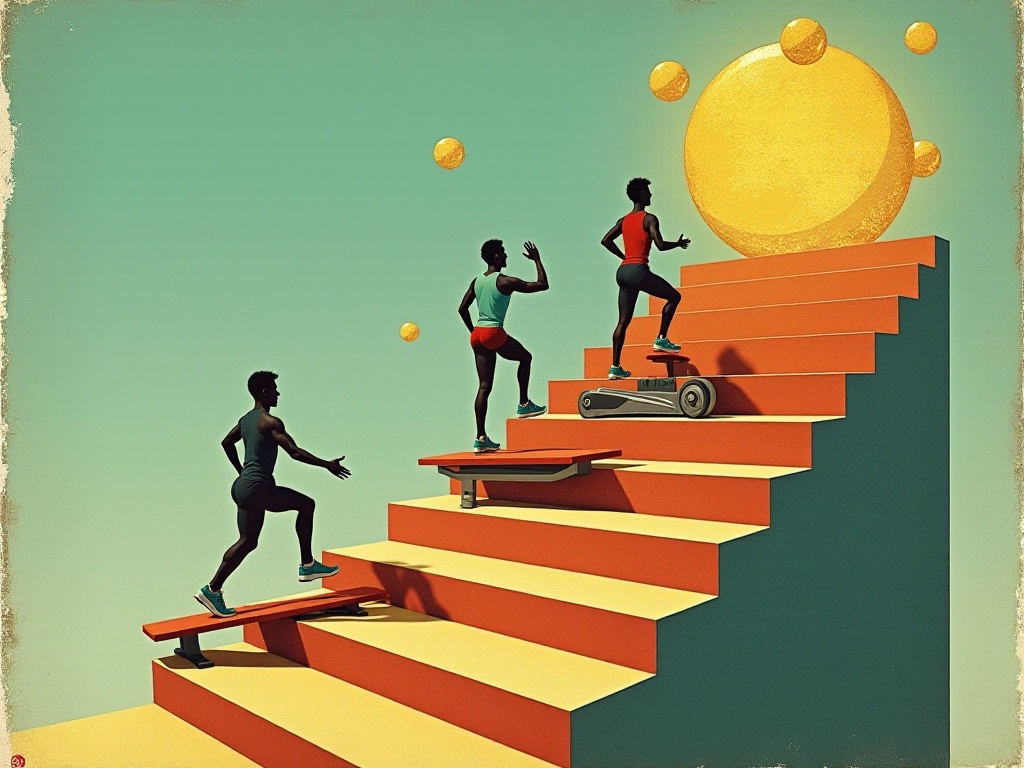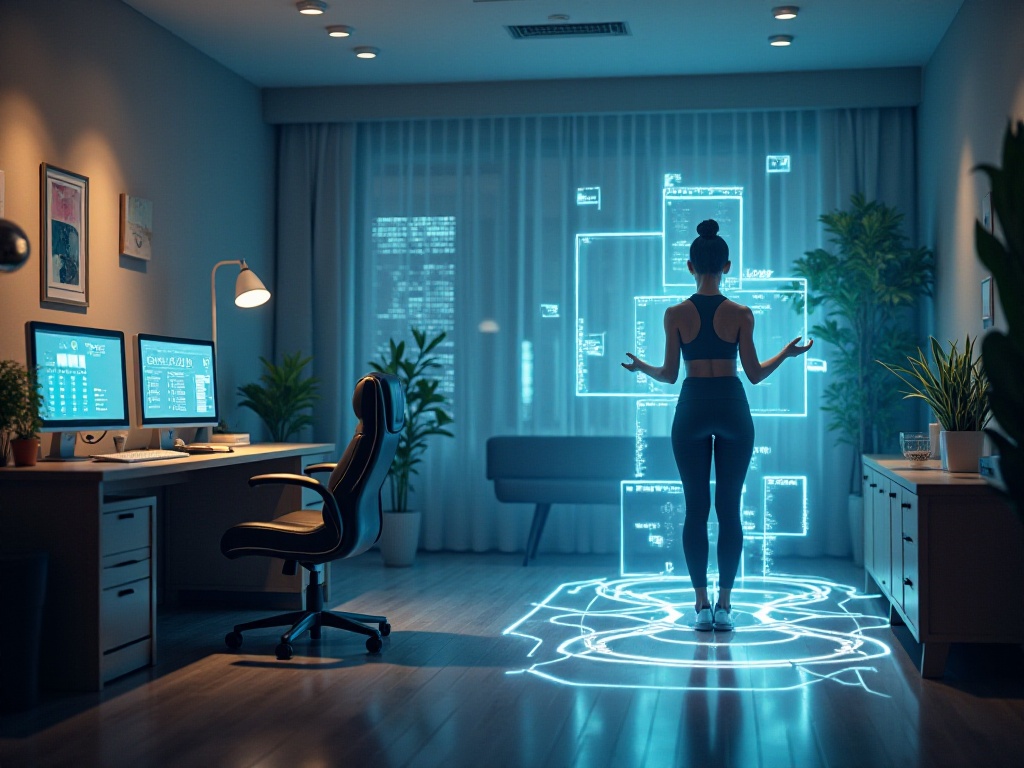The Dilemma
As a post-95 working professional, I deeply understand how difficult it is to maintain a fitness routine. I remember last Singles' Day when I made an impulse purchase, taking advantage of a discount to buy a yearly gym membership worth over 2,000 yuan, thinking "I'll definitely become a sophisticated urban lady in the new year." What happened? I was enthusiastic for the first two weeks, going to the gym after work every day, but by the third week, I started making all sorts of excuses. Now the card just lies in my wallet, silently mocking my willpower.
It's not just me; many of my friends have experienced similar situations. Some bought treadmills that ended up becoming clothes racks; others bought spinning bikes that now serve as bag holders; and some bought yoga balls that became their cats' toys. Seeing these "abandoned" fitness equipment always makes one sigh.
After so many failed attempts, I finally found some truly workable methods. These methods don't require much money or exceptional willpower, and most importantly, they're sustainable.
Time Management
When it comes to the biggest obstacle to exercise, it's undoubtedly the time issue. Every morning you think "I must go to the gym today," but then you work overtime until 9 PM, feeling completely exhausted - how can you exercise then? You plan to go running on weekends, but after partying with friends the night before, you end up sleeping until noon. These scenarios are just too real.
However, when I actually started calculating my daily time allocation, I discovered the problem wasn't lack of time, but not using time effectively. For example, I used to spend an hour scrolling through short videos before getting out of bed, half an hour browsing Weibo during lunch break, and two hours on Xiaohongshu while lying in bed at night. Added together, that's enough time to develop abs!
So I started trying "fragmented" exercise. Instead of immediately scrolling through short videos in the morning, I get out of bed and do 10 minutes of simple stretching exercises to help wake up my body. During lunch break, instead of sitting at my desk scrolling through my phone, I walk up and down the stairs in the office building. While watching TV shows at night, I do some squats during commercial breaks.
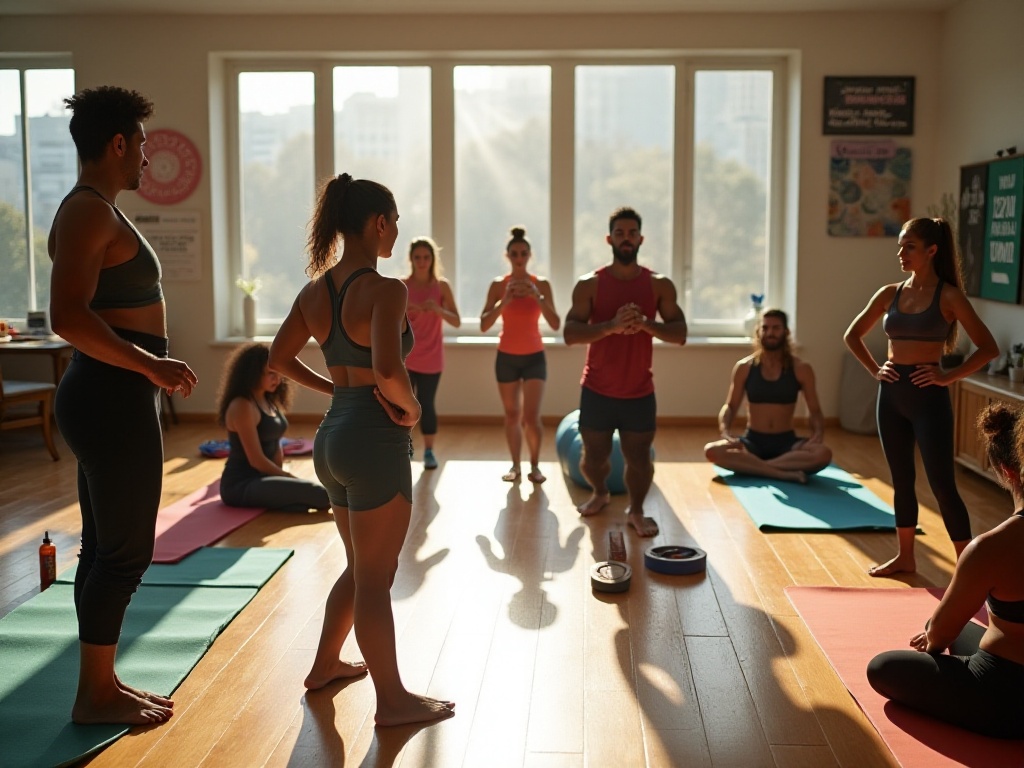
Environment Setup
To be honest, the biggest problem with exercising at home is getting distracted. The TV calls you, the phone beckons you, snacks tempt you. So, creating a dedicated exercise space is particularly important.
Although I rent a small apartment, I still managed to squeeze out two square meters of exercise space in my bedroom. It only has a yoga mat and a small mirror, nothing else, just to let my brain know: coming to this area means it's time to exercise!
Besides space, I also pay special attention to the placement of exercise equipment. Every night before bed, I put the next day's workout clothes and shoes in the most visible place beside my bed. This way, I see them as soon as I open my eyes, as if they're saying, "Hey, stop being lazy, it's time to exercise!" Moreover, I've found that the moment I put on workout clothes, my whole state changes, as if I've gained an exercise buff.
I also put some motivational quotes on my room walls, like "Today's sweat is tomorrow's abs" and "Lying flat feels good for a moment, but exercising feels good forever." Although it's a bit cheesy, it really works, especially when I see these words when I want to slack off, it feels like I've been caught.
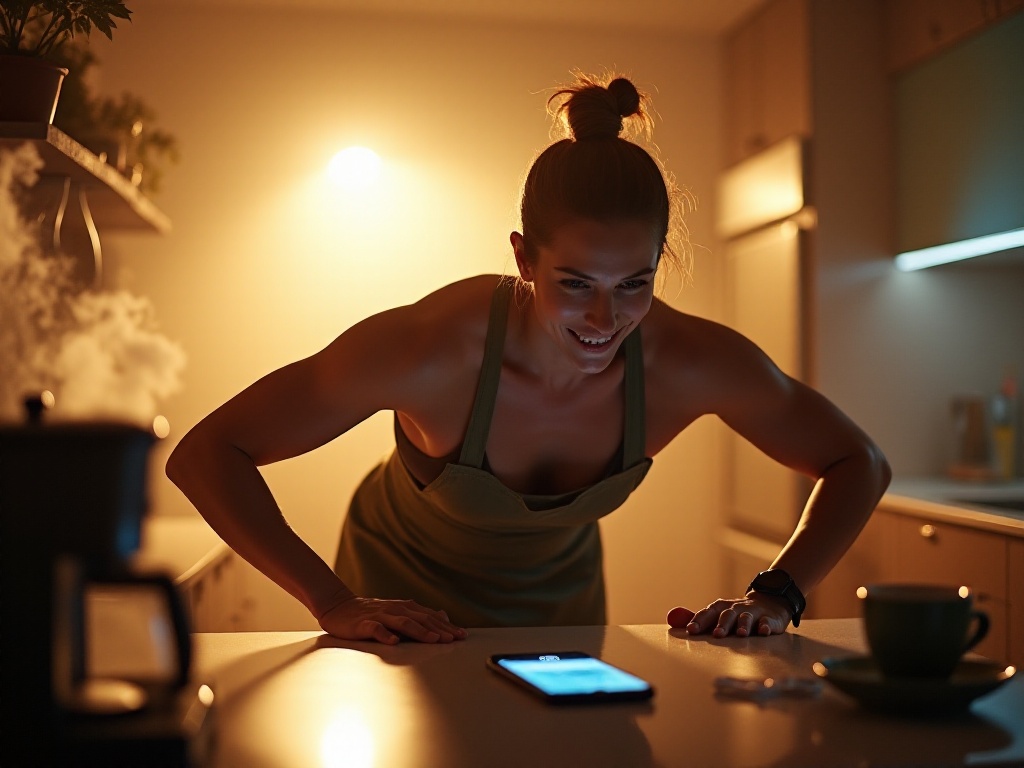
Equipment Selection
Speaking of fitness equipment, I really have deep experience. Last year, I impulsively bought a bunch of equipment on Taobao, but now many of them have become "art pieces," quietly lying in corners. Later I realized that many common household items can actually serve as exercise equipment.
For example, water bottles make excellent substitutes. I keep several 1.5L water bottles at home, which are perfect as dumbbells. They might seem too light at first, but for exercise beginners like us, gradual progress is the way to go. Plus, this weight is perfect for high-rep exercises, building muscle without risking injury.
Furniture also makes great exercise "equipment." I often use the sofa for push-ups, starting with the armrests, which is much easier than doing them on the floor. The coffee table is perfect for tricep dips, those up-and-down movements while gripping the table edge. As for walls, they're natural assistance tools, particularly helpful for practicing proper form in wall squats.
My proudest invention is the "backpack weight training." I usually carry my laptop to work, plus some books and a water bottle, weighing about 3-4 kg. Instead of complaining about the heavy backpack, I treat it as an opportunity for weight training. Now I walk to work carrying this "simple weight," saving bus fare while exercising - killing two birds with one stone.

Maintaining Motivation
When it comes to maintaining exercise motivation, this might be the hardest part. Everyone starts exercising with full enthusiasm, feeling like they could be the next Li Ning. But after keeping at it for a while, you find the passion slowly fading, and you need to find new sources of motivation.
My experience is that you must set some achievable small goals for yourself. For example, the first week's goal is to do 15 standard push-ups every day, increase to 20 in the second week, 25 in the third week, and so on. These goals should be specific, measurable, and somewhat challenging, but not too difficult.
To monitor myself in achieving these goals, I specifically opened a fitness check-in account on Xiaohongshu. After completing exercise each day, I take a photo or short video to record it. Although there aren't many followers, receiving encouragement from strangers on the internet always feels particularly warm and gives more motivation to keep going.
Finding exercise partners is really important. My best friend and I have an agreement: we encourage each other to exercise daily, and whoever completes their goal gets to ask for a milk tea from the other person the next morning. This way, we have both supervision and rewards - it couldn't be better.
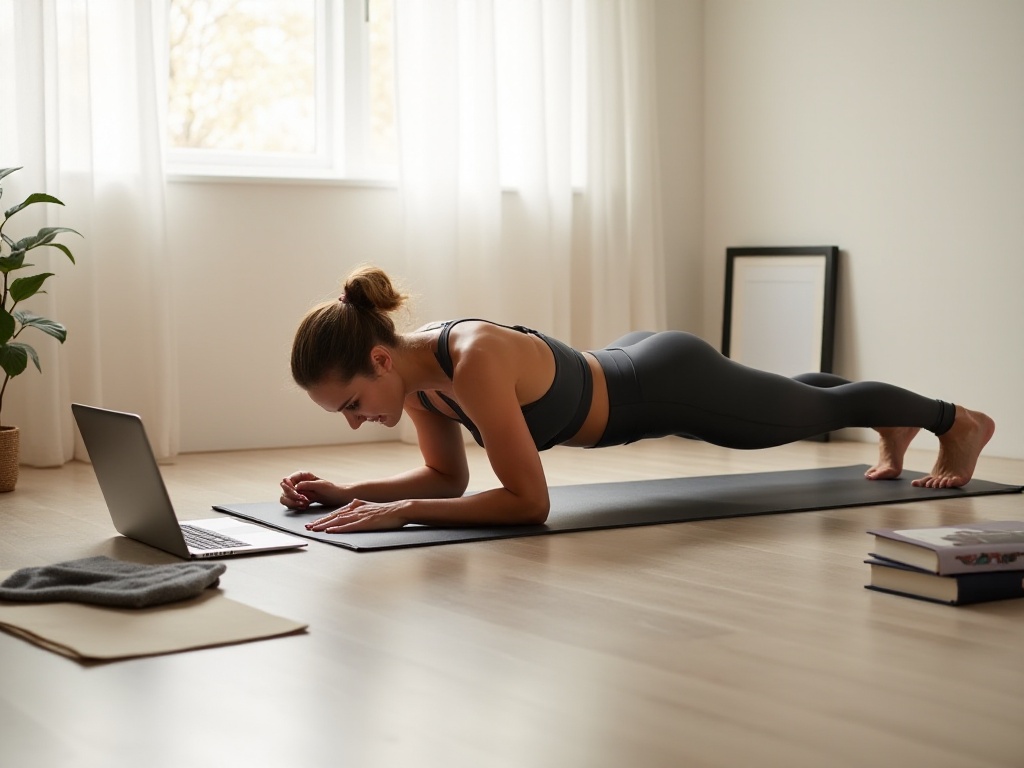
Lifestyle
Gradually, I found that exercise has become an indispensable part of my life. It's not just a task or goal anymore, but a lifestyle.
I used to think I needed to set aside special time for exercise, but now I've learned to find exercise opportunities in daily life. For example, regarding work, I now leave home half an hour early to ride a shared bike to work. It was indeed tiring at first, but after persisting for a while, not only has my physical fitness improved, but I've also developed a good habit of getting up early.
The most amazing thing is that this change has affected my other lifestyle habits. I used to always order takeout, but now I prefer to cook for myself because after exercising, I'm particularly mindful of what I put into my body. Even when watching TV, I no longer lie down but stand or sit on a yoga ball, watching shows while training my core - truly killing two birds with one stone.
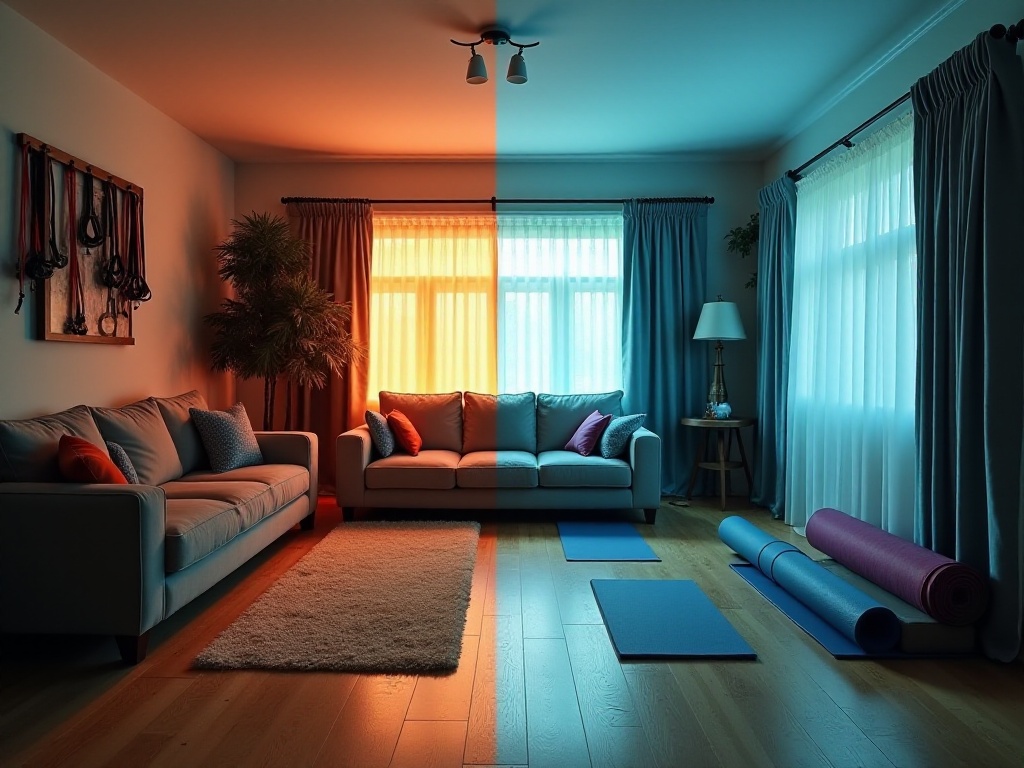
Achievements
After three months of persistence, my changes have been really significant. Not only did my weight drop from 75kg to 68kg, but my whole spirit is different. I used to always feel tired, but now I'm full of energy every day. Moreover, because of exercise, my daily routine has become much more regular, and my work efficiency has noticeably improved.
Most importantly, I found an exercise method that truly suits me. Without spending much money or time, I can maintain a healthy physical state. This feeling is really great.
Actually, the key to exercise isn't about how much equipment you have or how much time you have, but whether you really want to change. As long as you're willing to start, even if it's just ten minutes a day, it's better than doing nothing.
I remember when I first started exercising, there was one time I was doing squats at home and accidentally split my pants. It was really embarrassing at the time, but now I find it quite funny. These little incidents actually make exercising more interesting.
Have you encountered any interesting situations during exercise? Or what methods do you use to maintain exercise habits? I'd really like to hear everyone's stories. After all, on this fitness journey, we're all learning from each other and progressing together.
Related articles


